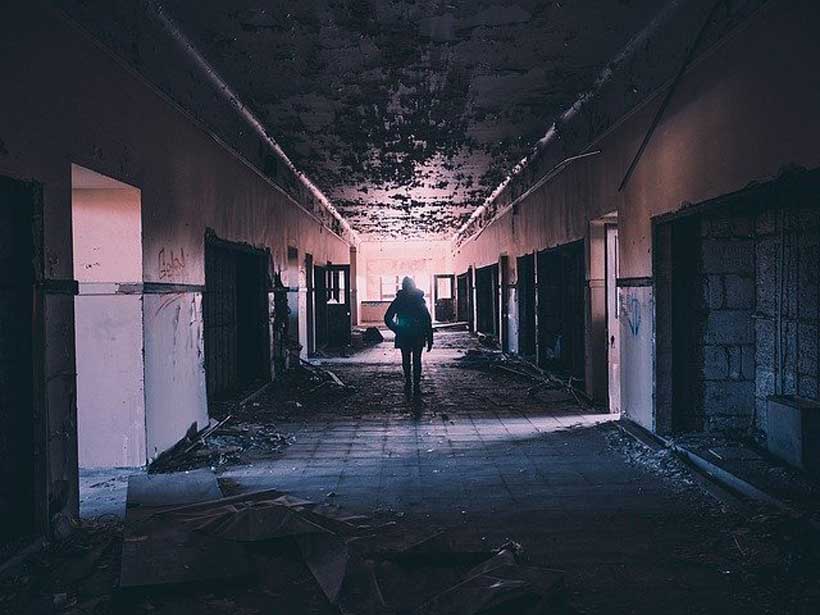For a few months now, humanity has been experiencing a new situation that is nothing similar to anything it had experienced during the last two centuries. We have a “war”, with an invisible and literally insidious enemy, in a time of peace that has affected almost the entire planet.
Two-hundred and fifty thousand (250,000) dead, 3.5 million cases (so far in early May) and anxiet over the vertical plane for the vaccine, or the drug that will neutralize the deadly virus. The economies of big countries are on their knees, the global economy is in recession and fears of a global crash are on the daily news agenda.
At the same time, everything in the international system that we held in certainty is now being tested, for as it turned out, international cooperation “took a hike” in the face of the doctrine “every man for himself”, and each country was trying and is yet still trying to meet the domestic material needs (masks, respirators, ICU, etc.) and to repatriate its citizens from every corner of the world.
Suddenly the conditions of globalization are changing, the role of the state is returning dynamically and the preachers of free economy and neoliberalism are retreating in front of the armies of the unemployed, the demands for nationalization and state aid for large companies, while the central banks are copiously printing money. In the United States alone, the flagship of capitalism, we have 30 million unemployed, and if the “pandemic” continues, thousands will be left homeless and forced to go to shelters with food programs, as the country goes to the polls in November. With more than 60,000 dead, the United States has surpassed the victims of Vietnam, Pearl Harbor and 9/11 combined. In Europe, large economies such as France, Germany and Italy are seeing their GDP fall from 5 to 15%, and it is difficult to predict the future and the overall cost of the pandemic.
At the same time, the (non-existent) solidarity and readiness of the EU was tested, with slow reflexes and without a plan at first, widening the North-South gap.
Global debt has risen, and it was already high at the end of 2019. The loans of over-indebted countries and developing countries are not being serviced, while the IMF is lending to countries so that they do not collapse. Inequalities, rising unemployment, impoverishment of large segments of society (shrinking middle class) and technophobia and technology dependence will be some of the trends for the next day.
At the level of politics, everything we knew is being challenged about ideologies, globalization, human rights and personal freedoms, the role of democracy and its relationship to the growing power of digital technology in controlling the lives and circulation of citizens in a digital police state (the corona virus has given way to developed applications that are already in use) in both democratic and unliberal regimes. We are already at the end of previously-held certainties and now ascertain that the world will not be the same.
The period we are going through at the geopolitical level also means the end of US global domination, its inability to lead the world, as well as the start of a new Cold War in which the former Soviet Union is replaced by China and its allies. The interdependence of China-US economic relations (China holds US government bonds worth $ 3 trillion) and the role of technology can range from a cold peace that is being shaped today –even with the tariffs– to the transfer of production lines to Western countries or others countries outside of China (regardless of the present dependence on the supply of materials during the pandemic)and, therefore, lead to a heated confrontation in the future.
However, from the current data and the management of the pandemic, it seems that China and the Asian countries broadly treated the pandemic more effectively and seem to be ahead in the use of technology, state control, citizen cooperation and health and equipment infrastructure. This means that in the coming years they can exert more influence and power in international affairs than the West will be able to. China, for example, has a GDP of $ 29 trillion and every 4 days it produces a GDP as large as Greece’s annual GDP.
To avoid dangerous upheavals in the future, a new form of international cooperation will be required, a 75-year-old UN renaissance (old age) and international economic cooperation with a new Bretton Woods (exchange rate system and an international economic infrastructure) is needed for the 21st century, for which, however, we have little hope for the time being.
And the future of Greece?
For our country, the situation was the worst that could have happened. After 10 years of austerity, loans and cuts, and finally being able to get a glimpse of light for the future, we now find ourselves struggling with the consequences of the coronavirus at both the economic and social level without a safety cushion. The country’s high dependence on tourism and services, rising unemployment, padlocks on the doors of thousands of businesses, declining government revenues, rising budget spending will bring down the GDP growth percentage in relation to the country’s debt. And, therefore, in order for this to be able to be serviced austerity policies will have to be implemented in the future (increase in taxes, reduction of salaries, pensions, new monetary measures, etc.). The only consolation (and mercy) is European solidarity and the decisions of the leaders to strengthen the states and the economies due to the extraordinary needs caused by the pandemic. Let’s be cautious in any case and proceed in designating a national reconstruction plan finally as the crisis will not end so quickly.


